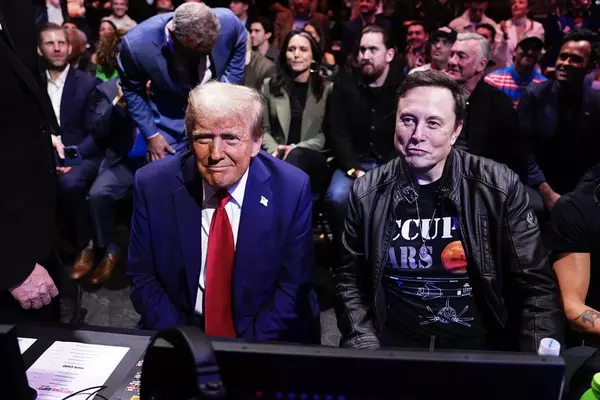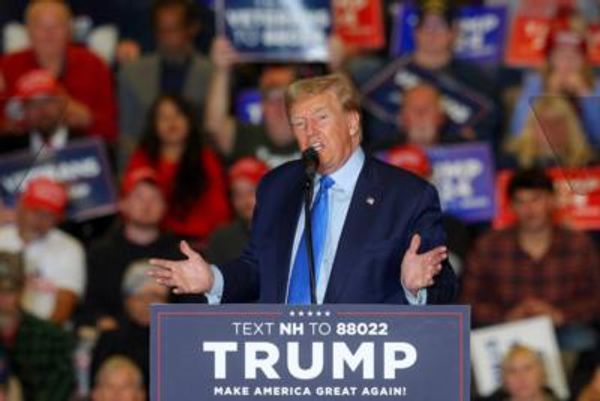Elon Musk is angry.
His detractors will see a lack of fair play, while his fans will give him reason.
Before getting to the reason for his anger, it should be noted that for more than a decade, from 2003 to almost 2013, the billionaire and Tesla (TSLA) pushed hard for the adoption of electric vehicles despite mockery from rivals and skepticism from financial markets and consumers.
Musk and Tesla had, however, found an ear at the White House in the person of Barack Obama, newly elected in 2008. Obama set an ambitious goal of putting 1 million advanced technology vehicles on the road by 2015 - which would reduce dependence on foreign oil and lead to a reduction in oil consumption of about 750 million barrels through 2030.
Obama proposed to transform the existing $7,500 federal tax credit for electric vehicles into a rebate that will be available to all consumers immediately at the point of sale. Tesla, which was one of the few vehicle manufacturers to develop only vehicles, took full advantage of this aid.
But that tax credit was to start disappearing once the automaker had sold its 200,000th qualifying. The credit was first to be reduced to $3,750, then to half again, and finally the aid was to disappear over a period of time.
Tesla sold its 200,000th vehicle in 2018, and the credit fully expired at the end of 2019.
It's a 'Big Deal'
But for many of the Austin, TX-based company's competitors, the tax credit still applies in full. This is the case, for example, of the Ford Mustang Mach-E (F) model, the F-150 Lightning pickup/truck, the electric version of the best-selling F-150, the Lucid Air sedan from Lucid Group (LCID), the Mercedes-Benz EV EQS (DDAIF) , the Porsche Taycan (VLKAF) , R1T pickups and R1S SUVs from Rivian (RIVN) and the Volkswagen ID.4.
You can find the list of brands and vehicles that still benefit from this tax credit here.
This credit gives a competitive edge to all these brands as the battle intensifies in the electric vehicle market between automakers, says Musk. And conversely, this substantial aid disadvantages Tesla, says its CEO.
"Tesla is at a competitive disadvantage with respect to tax credits," Musk said during a recent interview with the Tesla fan club Tesla owners Silicon Valley. "That is quite significant when you're talking about like, say a $40,000 car and a $7,500 tax credit. That's like almost a 20% difference. So big deal."
The serial entrepreneur did not stop there.
"So Tesla is successful currently in spite of our competitors having materially greater tax advantages, in spite of it not because of it."
"If you eliminated all EV tax credits, Tesla's position will improve immediately."
To show that he was angry at this federal tax credit that he considers unfair, Musk renewed his criticisms on the social network Twitter.
"Buyers of competing electric cars receive a $7500 tax credit, but Tesla does not," the billionaire repeated, thereby making his company a victim.
Tesla Is Not Alone
The video, posted on June 15, has already been viewed more than 2.3 million times.
"Truly absurd that government would actually subsidize cars that are not even being manufactured in the US with $7500 tax credit & wouldn't support Tesla (which completely manufacturers in the US)," commented a Musk fan. "Government supports Ford, whereas Ford is producing few of their cars in Mexico."
"Yeah, it’s crazy," Musk replied. "Model 3 has the most US content of any car made today."
What Musk fails to say is that Tesla isn't the only major automaker no longer benefiting from this federal tax credit. General Motors (GM) is also in the same situation. Electric vehicle buyers interested in the Chevy Bolt and Chevy Bolt EUV will receive nothing.
In general, vehicles benefiting from this federal tax credit must be battery-electric or plug-in hybrids and purchased-- not leased -- as new vehicles.
It is based on battery capacity beyond a standardized minimum, so some plug-in vehicles qualify for lesser amounts.
Aside from the federal tax credit, there are other state-level incentives for electric vehicle buyers. You can consult the list of states offering aid here.







